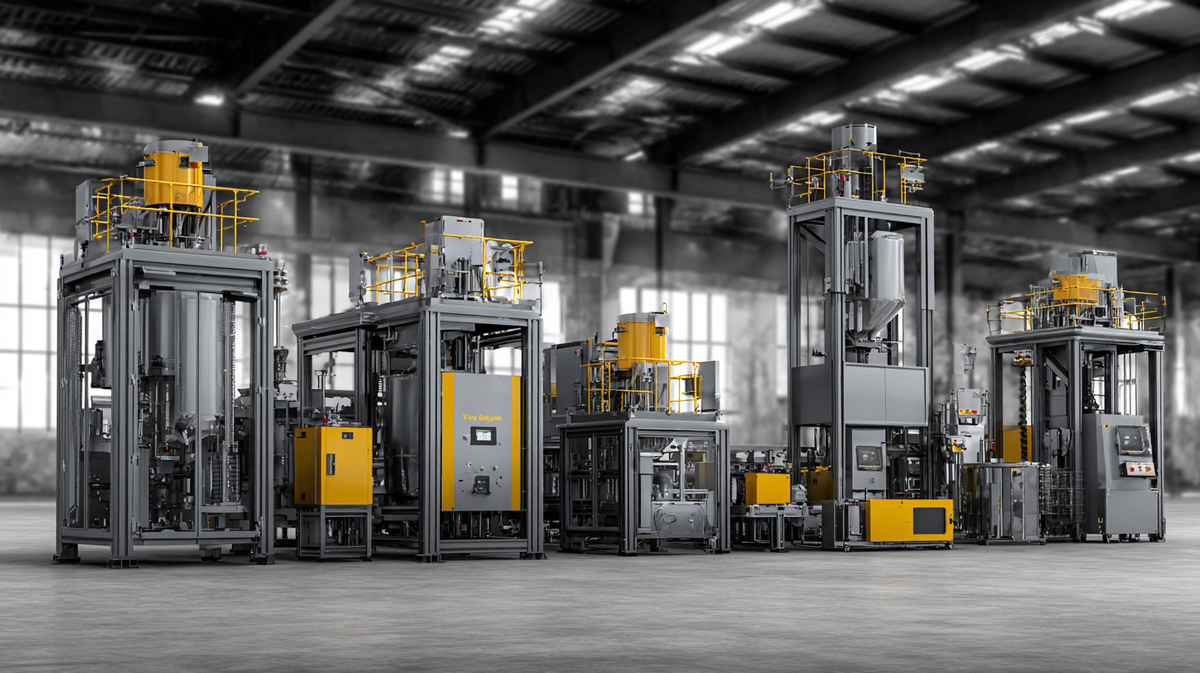
Filling machines are essential components in the manufacturing and packaging industries, playing a crucial role in ensuring products are accurately and efficiently filled into containers. These machines are designed to handle a wide range of products, from liquids and powders to granules and pastes, making them indispensable in sectors such as food and beverage, pharmaceuticals, cosmetics, and chemicals. As technology advances, filling machines have evolved to meet the demands of high-speed production lines, precision, and versatility. This article delves into the various types of industrial filling machines, exploring their unique features and applications across different industries.
Types of Industrial Filling Machines
Industrial filling machines come in various forms, each tailored to specific product types and production requirements. Understanding the different types of filling machines is crucial for selecting the right equipment for your production line.
Liquid Filling Machines: These machines are designed to fill containers with liquid products, ranging from water and juices to oils and chemicals. Liquid filling machines can be further categorized into volumetric, gravity, and piston fillers. Volumetric fillers measure the volume of liquid to ensure precise filling, while gravity fillers rely on the natural flow of liquid into containers. Piston fillers use a piston mechanism to draw and dispense liquid, making them ideal for viscous products.
Powder Filling Machines: Powder filling machines are used for products like flour, spices, and pharmaceuticals. These machines typically use auger or cup fillers to measure and dispense the correct amount of powder into containers. Auger fillers are suitable for free-flowing powders, while cup fillers are used for non-free-flowing powders.
Paste Filling Machines: Designed for thick and semi-solid products, paste filling machines are commonly used in the food and cosmetics industries. These machines often use piston or pump mechanisms to handle products like sauces, creams, and gels.
Granule Filling Machines: Granule filling machines are used for products like grains, seeds, and pellets. These machines often employ volumetric or weigh-filling techniques to ensure accurate filling.
For more detailed information on filling machines, visit https://stm-pack.com/machines-categories/filling-machines/.
Applications Across Various Industries
Filling machines are integral to numerous industries, each with specific requirements and challenges. Here, we explore how different sectors utilize filling machines to optimize their production processes.
Food and Beverage Industry: In this sector, filling machines are used to package a wide array of products, from bottled water and soft drinks to sauces and condiments. The machines must adhere to strict hygiene standards and be capable of handling different container sizes and shapes. High-speed liquid filling machines are particularly popular in this industry to meet the demands of large-scale production.
Pharmaceutical Industry: Precision and accuracy are paramount in the pharmaceutical industry, where filling machines are used to package liquid medicines, powders, and tablets. These machines must comply with stringent regulatory standards to ensure product safety and efficacy. Advanced technologies, such as aseptic filling, are often employed to maintain sterility and prevent contamination.
Cosmetics Industry: The cosmetics industry requires filling machines that can handle a variety of product consistencies, from liquid perfumes to thick creams. Flexibility and precision are key, as manufacturers often deal with small batch sizes and diverse packaging formats. Machines with quick changeover capabilities are highly valued in this sector.
Chemical Industry: Filling machines in the chemical industry must be robust and capable of handling corrosive and hazardous materials. Safety features and material compatibility are critical considerations when selecting filling equipment for this sector.
Choosing the Right Filling Machine for Your Needs
Selecting the appropriate filling machine for your production line involves considering several factors, including product type, production volume, and container specifications. Here are some key considerations to keep in mind:
Product Characteristics: The viscosity, flowability, and chemical properties of your product will influence the type of filling machine you need. For instance, liquid products may require different filling mechanisms compared to powders or pastes.
Production Volume: High-speed production lines demand machines that can handle large volumes efficiently. Consider the machine’s filling speed and capacity to ensure it meets your production targets.
Container Specifications: The size, shape, and material of your containers will affect the choice of filling machine. Some machines offer greater flexibility in handling different container types, which can be advantageous for manufacturers with diverse product lines.
Regulatory Compliance: Ensure that the filling machine complies with industry-specific regulations and standards, particularly in sectors like pharmaceuticals and food and beverage, where hygiene and safety are critical.
By carefully evaluating these factors, manufacturers can select filling machines that enhance efficiency, reduce waste, and maintain product quality across their production processes.



